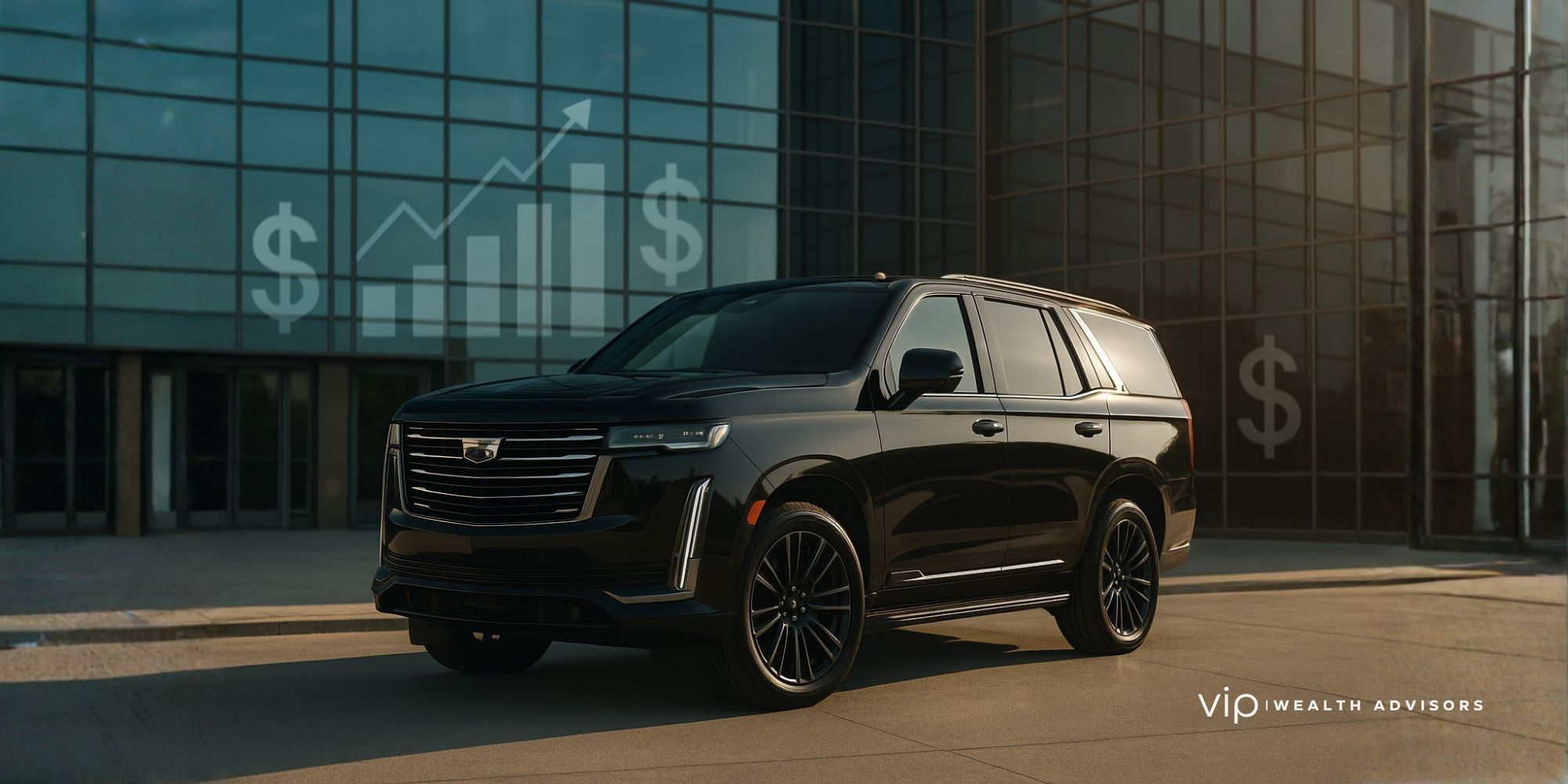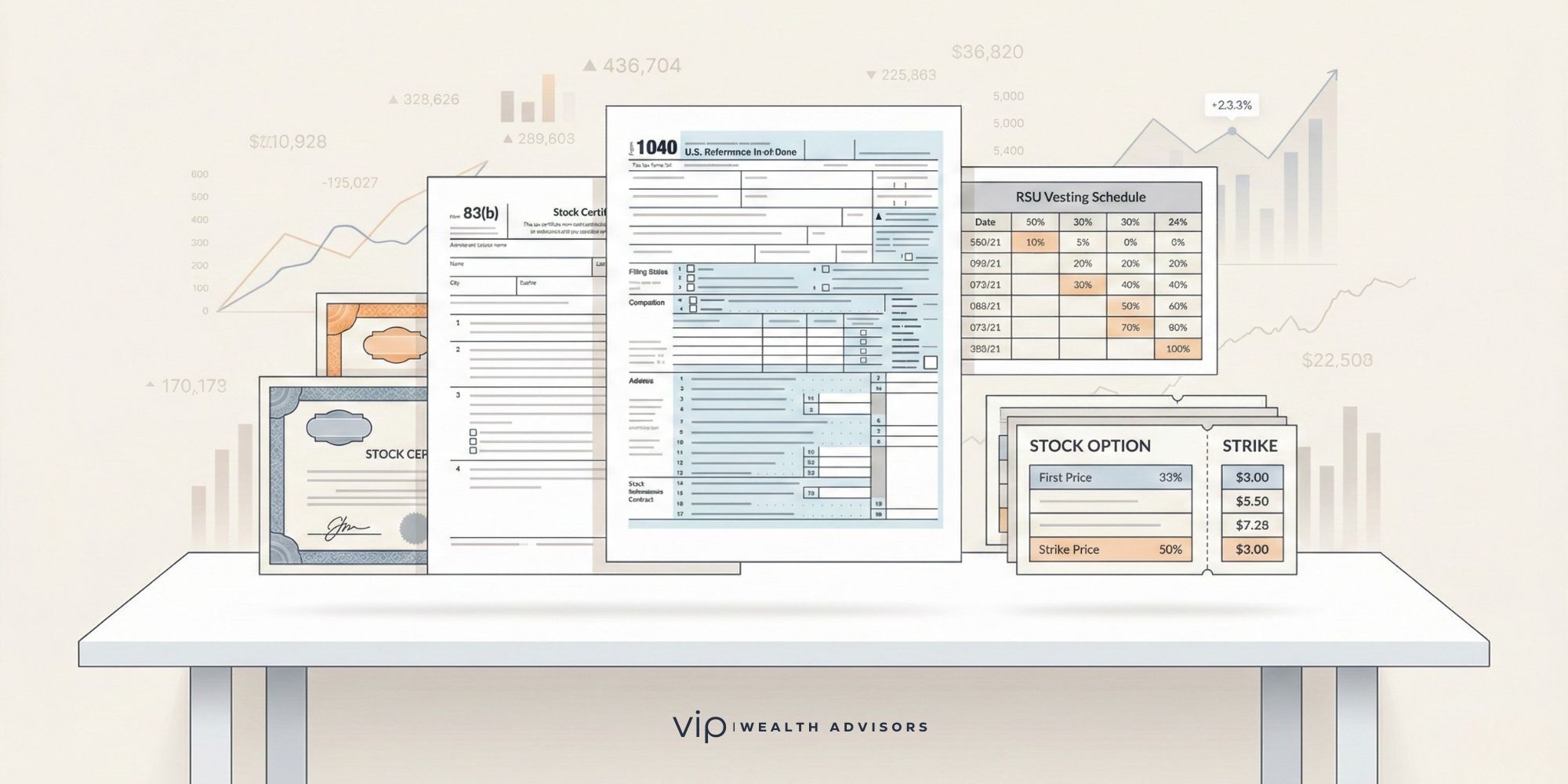When Congress passed the 'One, Big, Beautiful Bill Act' (Public Law 119-21) on July 4, 2025, it quietly restored a decisive tax break available to business owners and self-employed professionals: 100% bonus depreciation.
For entrepreneurs, consultants, and professionals who use vehicles for business, this single change could mean tens of thousands of dollars in new deductions, especially for those driving heavier SUVs, trucks, and luxury vehicles.
If you've ever wondered how some business owners write off nearly the entire cost of a new Escalade or Range Rover in one year, the answer lies in how the IRS treats vehicles above and below 6,000 pounds.
Let's break down what changed, how the law works, and how to maximize this opportunity in 2025 and beyond.
The Big Picture: What the 2025 Law Did
The One, Big, Beautiful Bill Act (P.L. 119-21) permanently restored 100% bonus depreciation for qualified property under Internal Revenue Code §168(k).
Previously, the TCJA's bonus depreciation rate had been phasing down to 80% in 2023, 60% in 2024, and was scheduled to fall to 40% in 2025. That phase-out is now gone.
Under the new law:
- Property acquired and placed in service after January 19th, 2025, qualifies for 100% immediate expensing, and
- The 100% rate is permanent unless Congress changes it again.
This includes most tangible business assets with a recovery period of 20 years or less, such as machinery, equipment, technology, and vehicles.
For vehicles, however, there's a big dividing line: the 6,000-pound rule.
Why 6,000 Pounds Matters
The IRS classifies vehicles for depreciation purposes based on their Gross Vehicle Weight Rating (GVWR) - the manufacturer's listed maximum total weight of the vehicle, passengers, and cargo.
- Under 6,000 lbs GVWR: "Passenger vehicles" subject to luxury auto limits under IRC §280F.
- Over 6,000 lbs GVWR: "Heavy SUVs, trucks, and vans" are not subject to those limits.
That one distinction determines whether you can deduct $20,000 or $120,000 in the first year.
Case Study 1: Tesla Model Y (Under 6,000 lbs)
- GVWR: 4,416 lbs
- Purchase Price: $70,000
- Business Use: 80%
- Placed in Service: July 2025
Because the Model Y weighs under 6,000 pounds, it's subject to luxury auto caps under §280F - even though it technically qualifies for bonus depreciation.
For 2025, the IRS's inflation-adjusted caps are roughly:
- $20,400 in year 1 (if bonus applies)
- $19,800 in year 2
- $11,900 in year 3
- $7,100 each year after
So, even though 100% bonus depreciation is allowed, you're capped at about $20,400 in the first year. The rest is spread over five years.
Result: $20,400 deduction instead of the whole $56,000 (business portion of $70,000 × 80%).
Case Study 2: Cadillac Escalade (Over 6,000 lbs)
- GVWR: 7,400 lbs
- Purchase Price: $90,000
- Business Use: 80%
- Placed in Service: July 2025
Because the Escalade exceeds 6,000 lbs GVWR, it is not subject to luxury auto limits.
That means the full 100% bonus depreciation applies to the business-use percentage of the cost.
$90,000 × 80% = $72,000 deduction in year one.
Result: The business owner receives an immediate $72,000 deduction in 2025.
At a 35% effective tax rate, that's a $25,200 reduction in taxes from one purchase. Or in other words, the Government is paying for 28% of the vehicle. Not bad!
Which Vehicles Qualify for the 100% Deduction?
Any vehicle with a GVWR over 6,000 lbs and used more than 50% for business can qualify.
Common examples include:
- Cadillac Escalade, Audi Q8, Lincoln Navigator, GMC Yukon
- Tesla Model X, Rivian R1S, and R1T
- Range Rover, Mercedes G-Class, BMW X7
- Ford Expedition, Chevy Tahoe/Suburban, Toyota Sequoia
- Pickup trucks with full-size beds (F-150, Silverado, Ram 1500, etc.)
You can check your vehicle's GVWR on the driver-side door jamb sticker or manufacturer specs.
The Business-Use Requirement
Both §168(k) and §280F require the vehicle to be used more than 50% for qualified business use to claim bonus depreciation.
- Driving to client meetings, work sites, business errands, or airports for business travel counts.
- Commuting between home and your main office does not.
- You must maintain a contemporaneous mileage log (digital or paper) to substantiate use.
If business use ever falls below 50% in a later year, the IRS requires recapture, effectively adding back part of your prior deduction as income.
Section 179 vs. Bonus Depreciation: Which Is Better?
With 100% bonus depreciation now permanent, most business owners will likely favor bonus depreciation over §179, unless they want to control the amount of deduction they take in a given year.
Section 179 expensing and bonus depreciation both allow you to write off large purchases in year one, but there are differences:
Feature
Deduction Limit (2025)
Section 179: $2,500,000 (indexed)
Bonus Depreciation: No dollar limit
SUV Cap (6,000–14,000 lbs)
Section 179: $31,300
Bonus Depreciation: No cap
New or Used Property
Section 179: Both
Bonus Depreciation: Both
Taxable Income Limit
Section 179: Yes (limited to business income)
Bonus Depreciation: No limit (can create a loss)
Carryforward
Section 179: Yes
Bonus Depreciation: N/A (100% immediate)
Elective?
Section 179: Yes, choose specific assets
Bonus Depreciation: Applies automatically unless you opt out
Tax Reporting: How It Appears on Form 4562
- Part II (Line 14): Bonus depreciation is claimed here under §168(k).
- Part V: Used for "listed property," including vehicles, where business use must exceed 50%.
Maintain supporting documentation (purchase receipt, mileage logs, and GVWR proof).
Depreciation Recapture Rules
If your vehicle's business use later falls to 50% or less, the IRS requires you to recapture (add back) part of the accelerated depreciation as ordinary income under §280F(b)(2).
Example:
- Escalade purchased for $90,000, used 80% for business in 2025 (100% bonus depreciation claimed).
- In 2027, business use drops to 40%. → You must recapture a proportional share of the prior bonus deduction on your 2027 return.
State Conformity Watch
Not all states conform to federal bonus depreciation or §179 rules.
- California and New York, for example, disallow federal bonus depreciation entirely, requiring you to add back the deduction for state tax purposes.
- Always check your state conformity status when planning large purchases.
VIP Wealth Advisors clients receive integrated tax planning that considers both federal and state implications, ensuring strategies are implemented in a manner that minimizes tax liabilities.
Practical Tax Planning Tips for 2025
- Time your purchase carefully. Only vehicles acquired and placed in service after January 19, 2025, qualify for the new 100% bonus rules.
- Verify GVWR. Don't assume a vehicle qualifies; check the manufacturer's label for confirmation.
- Document business use. Use a mileage log app (e.g., Everlance, MileIQ, TripLog) to track the distinction between business and personal use.
- Consider cash flow and entity type. If you're an S corporation or partnership, ensure the vehicle is titled and used correctly to avoid attribution or personal-use adjustments on your K-1.
- Review insurance and liability exposure. Heavier vehicles may carry higher insurance costs or different coverage needs.
- Plan for resale or lease buyouts. A vehicle entirely written off under bonus depreciation will have zero tax basis; if you sell it later, most of the proceeds will be taxable gain.
Vehicle Deduction Comparison Summary
Quick Reference
GVWR: 4,416 lbs
FMV (Cost Basis): $70,000
Business Use %: 80%
Bonus Depreciation Deduction: $20,400
IRS Cap Applies? ✅ Yes
GVWR: 7,400 lbs
FMV (Cost Basis): $90,000
Business Use %: 80%
Bonus Depreciation Deduction: $72,000
IRS Cap Applies? ❌ No
GVWR: 7,050 lbs
FMV (Cost Basis): $90,000
Business Use %: 100%
Bonus Depreciation Deduction: $90,000
IRS Cap Applies? ❌ No
GVWR: 5,400 lbs
FMV (Cost Basis): $80,000
Business Use %: 75%
Bonus Depreciation Deduction: $20,400
IRS Cap Applies? ✅ Yes
GVWR: 8,532 lbs
FMV (Cost Basis): $105,000
Business Use %: 90%
Bonus Depreciation Deduction: $94,500
IRS Cap Applies? ❌ No
The Bottom Line
The One, Big, Beautiful Bill Act fundamentally reshaped the landscape for business vehicle deductions in 2025 and beyond.
With 100% bonus depreciation restored permanently, high-income entrepreneurs, consultants, and professionals now have a powerful tool to reduce taxable income, provided they structure ownership correctly and maintain solid documentation.
A 6,000-pound vehicle may not sound glamorous, but when that SUV or truck doubles as a legitimate business asset, it can deliver substantial first-year tax savings, often enough to offset a large portion of your federal tax liability.
VIP Wealth Advisors Insight
At VIP Wealth Advisors, we integrate tax strategy directly into financial planning, helping business owners, executives, and professionals make informed decisions that align with both their lifestyle and long-term wealth goals.
If you're considering a vehicle purchase or want to ensure you're leveraging the 2025 bonus depreciation law effectively, schedule a consultation. We'll model your deduction, cash flow impact, and future recapture scenarios so that you can move forward with confidence.
Frequently Asked Questions (Bonus Depreciation & Vehicles in 2025)
+Q: Can I deduct 100% of a new car if I finance it?
Yes. You can claim bonus depreciation on the full purchase price of qualifying business property, even if it's financed. The key is that you own the vehicle (with the title in your business name or as a sole proprietor asset). Leasing does not qualify.
+Q: What if I buy the vehicle in December 2025 but don't use it until January 2026?
You can only claim the deduction in the year it is placed in service - i.e., when it's ready and available for business use. So if the car isn't in use until 2026, the deduction applies to your 2026 return.
+Q: Can an employee claim bonus depreciation for their vehicle?
Generally, no. Bonus depreciation is reserved for business owners and self-employed taxpayers. Employees can't deduct unreimbursed business use of their personal vehicles since the 2017 TCJA eliminated miscellaneous itemized deductions.
+Q: Do electric vehicles qualify?
Yes. Bonus depreciation is agnostic to the type of fuel. Electric vehicles qualify as long as they meet the business-use and GVWR requirements.
+Q: Can I use both §179 and bonus depreciation together?
Yes. You can elect §179 on specific assets (up to the annual cap), and then apply bonus depreciation to the remaining basis. Most taxpayers now skip §179 for vehicles because bonus depreciation offers full expensing without the income limitation.
+Q: What happens if business use drops below 50%?
You must recapture a portion of the depreciation as ordinary income. Keep accurate records of mileage and business purpose to avoid surprises.
+Q: How does this affect my self-employment or S-Corp return?
Sole proprietors report depreciation on Schedule C.
S corporations and partnerships claim the deduction on Form 4562 and pass it through to owners via Schedule K-1. The business-use percentage and titling must match the ownership structure.
+Q: Does this apply to used vehicles?
Yes. The 2025 Act preserved the TCJA's rule that bonus depreciation applies to both new and used qualifying property, as long as it's the first time you're using it for business.
+Q: What's the difference between bonus depreciation and a Section 179 SUV deduction?
For 2025, Section 179 has a $31,300 SUV cap and an income limitation.
Bonus depreciation has no cap and can create a loss. If you're trying to maximize your write-off, bonus depreciation wins every time.
+Q: Can I deduct 100% of a luxury sedan like a Mercedes S-Class or Porsche Taycan?
Not immediately. Since those weigh under 6,000 lbs GVWR, they fall under §280F "luxury auto" limits, which cap year-one deductions around $20,400 even under bonus depreciation.
+Q: Will this deduction trigger an audit?
Large vehicle deductions can attract attention, but they're legitimate if properly documented. Maintain:
- Mileage logs
- Proof of GVWR
- Purchase and financing documents
- Entity ownership and usage records
VIP Wealth Advisors helps clients substantiate deductions through integrated tax preparation and advisory services.
Thinking about upgrading your business vehicle in 2025?
Before you buy, we'll model the deduction, cash flow impact, and potential recapture scenarios so you can make a confident, tax-smart decision.
View More Articles by Topic
- Taxes (81)
- Financial Planning (46)
- Equity Compensation (38)
- Investments (30)
- RSU (23)
- Tax Policy & Legislation (19)
- Business Owner Planning (17)
- Incentive Stock Options (16)
- Retirement (16)
- Psychology of Money (15)
- Alternative Investments (13)
- AMT (9)
- Pre-IPO Planning (9)
- Real Estate (9)
- Estate Planning (8)
- Fiduciary Standard (8)
- Crypto (6)
- NSOs (6)
- The Boring Investment Strategy (6)
- Capital Gains Tax (5)
- Private Investments (5)
- QSBS (5)
- Market Insights (4)
- Post-IPO Tax Strategy (4)
- 401(k) Strategy (3)
- Market Timing (3)
- Q&A (3)
- Stock Market (3)
- Venture Capital (3)
- Altruist (2)
- Charitable Giving (2)
- ETF Taxes (2)
- IRA Strategy (2)
- International Financial Strategies (2)
- Irrevocable Trust (2)
- Legacy Wealth (2)
- Video (2)
- AUM vs Flat Fee (1)
- Atlanta (1)
- Book Review (1)
- Carried Interest Planning (1)
- Depreciation & Deductions (1)
- Education Planning (1)
- Energy Markets (1)
- Precious Metals (1)
- QTIP Trust (1)
- Revocable Trust (1)
- Risk Management (1)
- Schwab (1)
- Solo 401k (1)








